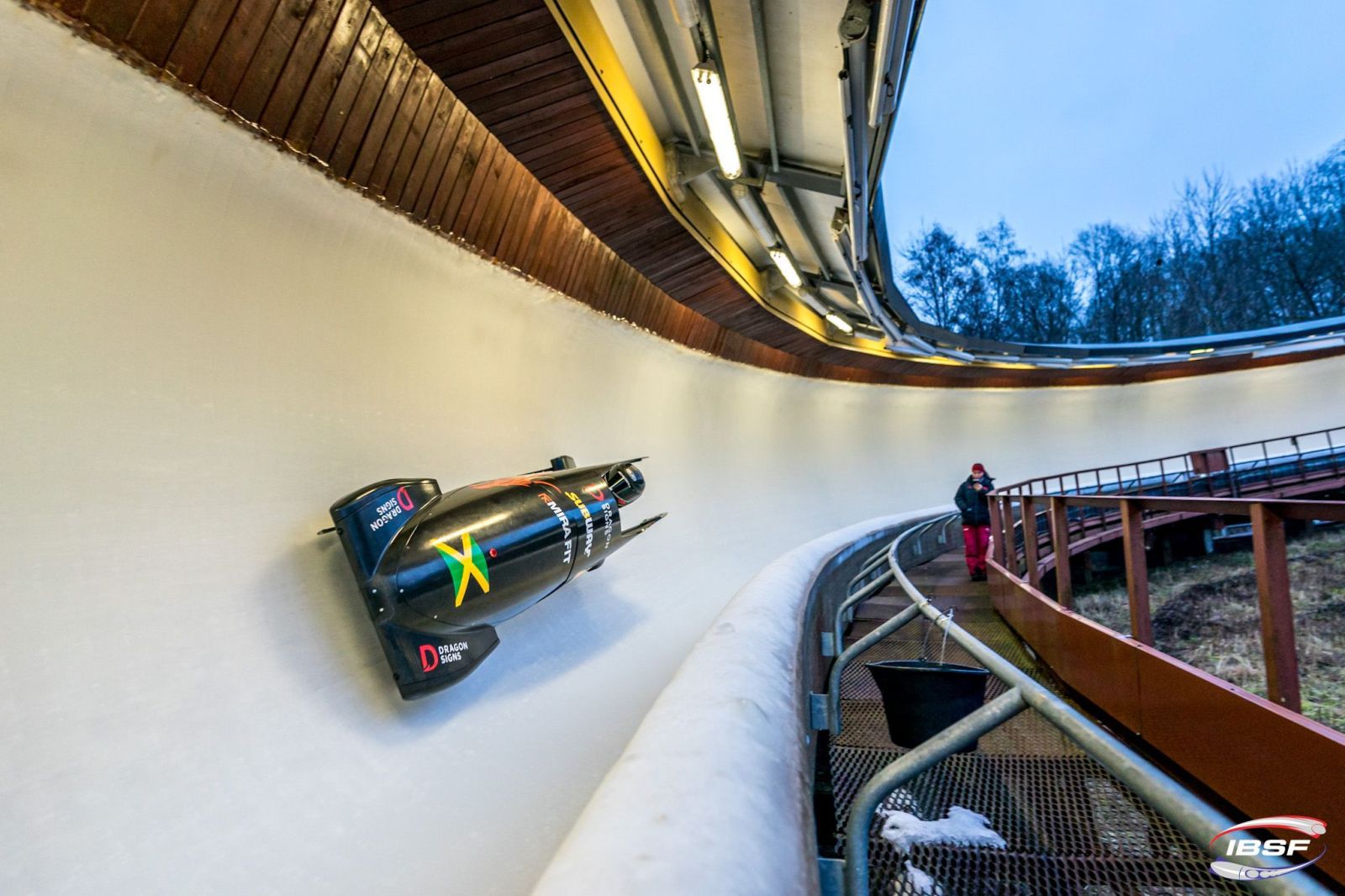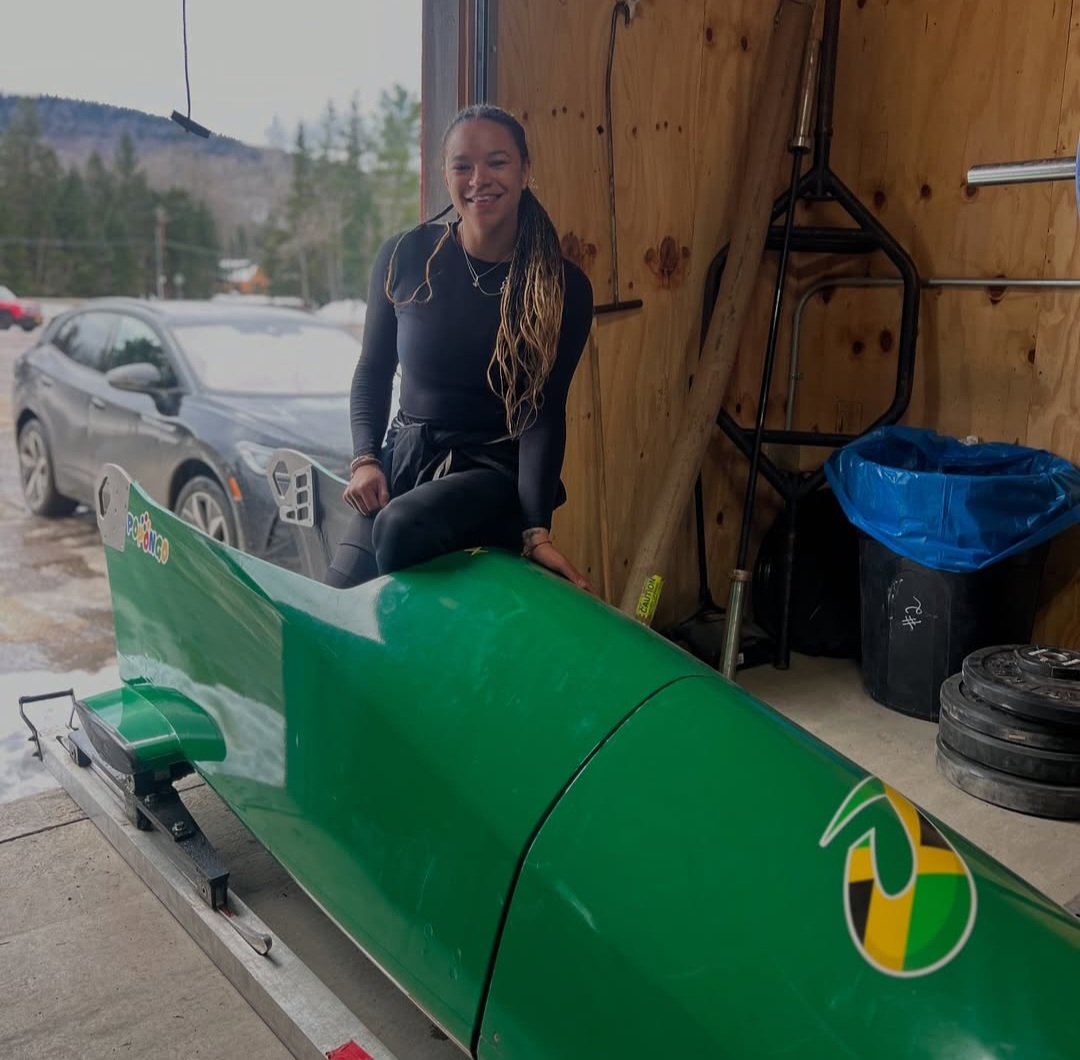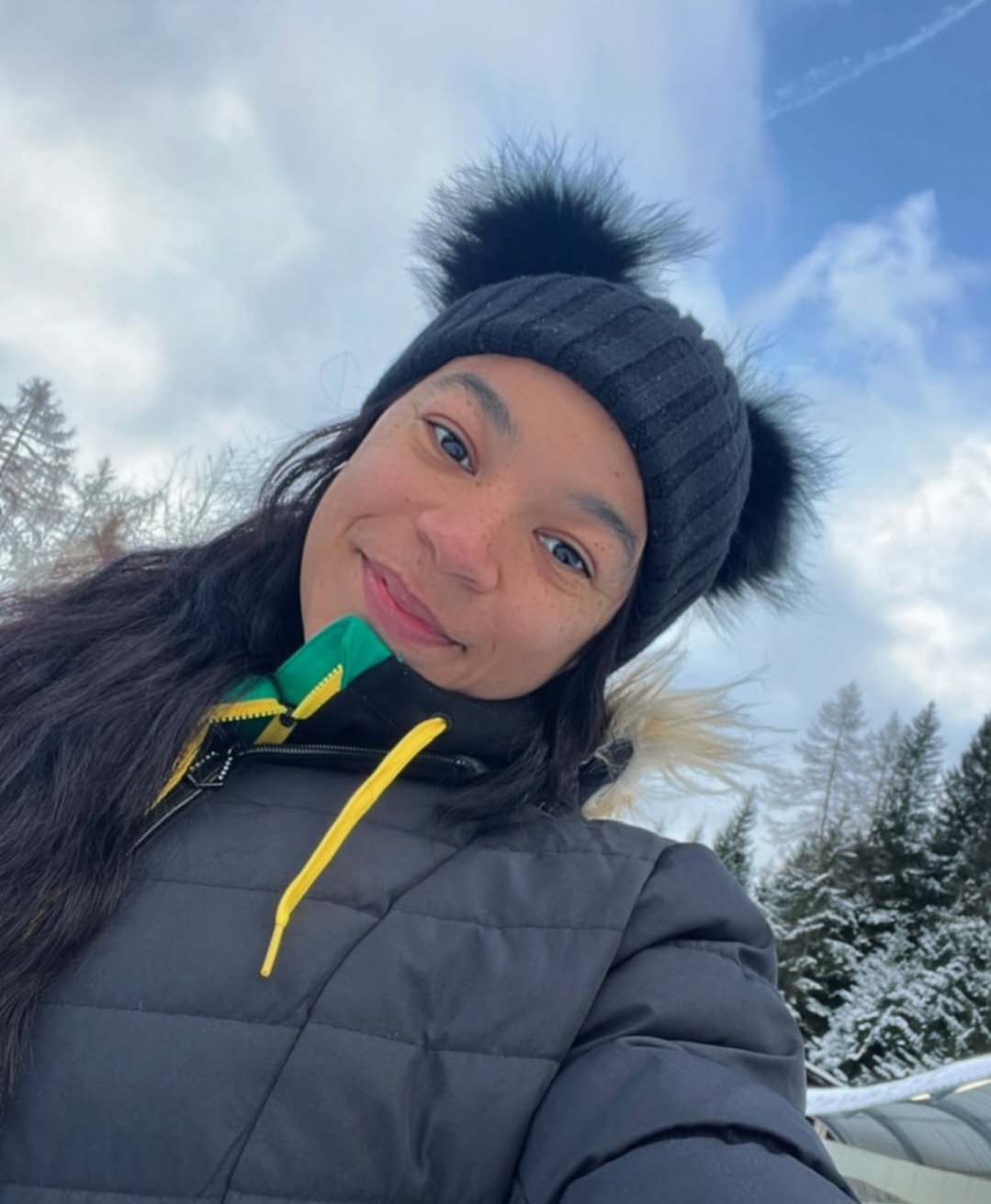
Tags: Bobsleigh, Bobsleigh/Mica Moore, Bobsleigh/Jamaica Bobsled
Mica Moore has faced many crossroads in her career. There were times when she thought about giving up—not because she lost her love for bobsleigh, but because of challenges beyond her control.
However, the British-born bobsleigher has now embraced a fresh start, representing Jamaica, and she is beaming about the prospects of her decision, which isn’t just a career move—it’s personal.
Moore’s transition comes after her departure from the British bobsleigh programme in 2022, where she cited “damaging and offensive behaviour” during her tenure.
Though the experience was a difficult one, it did not break her spirit. Instead, it led her toward a path she had dreamed of for years—representing the country of her heritage.
Standing on the ice at the Europe Cup in Lillehammer for her first monobob competition under her new colours, Moore couldn’t contain her emotions.

“Representing Jamaica for the first time was such a heartwarming experience. It's obviously been a long time coming. I started looking at getting my passport and citizenship back in 2021, and the process has really, really taken a lot of time. I had to be really resilient because my grandfather [Venson Byfield], who I was using to get my passport, passed away many years ago, and gathering his documents was quite difficult,” Moore, who was born and raised in Wales, recalled.
“But I'm just so happy that it's been able to all come to fruition. Standing on the block in Lillehammer, I had a big smile. Obviously, as an athlete, getting good results and being competitive is so important to me, but on that day, I was just so happy to have the Jamaican flag on my chest and to be honouring my family, my heritage, and all of Jamaica,” she told SportsMax.Tv from her base in Europe.
While she made history at the 2018 Pyeongchang Winter Olympics alongside Mica McNeill with an eighth-place finish for Great Britain, Moore’s journey into bobsleigh wasn’t a straightforward one.
The 32-year-old first excelled in track and field, competing for Wales in the 4x100m relay at the 2014 Commonwealth Games in Glasgow, where her team finished seventh in a national record. However, her sprinting ambitions were derailed when she fell ill with a viral infection, which significantly impacted her training.
Instead of giving up on her athletic career, she pivoted. Encouraged by a friend on the bobsleigh team, she attended trials in 2016, and the sport quickly captured her heart.
"I loved the community of bobsleigh. And as soon as I got on ice, I found something that suited my attributes—my speed, my power. In early 2017, I became a world junior champion as a brakewoman, and then I pushed on to 2018 and made the Olympic team. It was kind of a whirlwind, but I wouldn't have had it any other way,” she declared.

Bobsleigh is a sport of extreme highs and crushing lows, and for Moore, the mental challenges have been just as demanding as the physical ones.
“You'll have crashes; you'll have bad runs. As a brakewoman, I had some quite difficult crashes that were mentally challenging to overcome, but I used to use a lot of quotes to get through those difficult times. So I actually got one of those quotes tattooed on me, which says, ‘Only the fearless can be great.’ I live by that because I always tell myself if you want to be great and successful, then you've got to battle through that fear,” Moore shared.
“And then, obviously, becoming a pilot, it's getting over the peaks and setbacks that happen every day. You might go down a track and have one brilliant run and then a not so good run in a training session. It's about turning that into a positive and coming back the next day and saying, 'Right, well, I'm going to fix those mistakes,” she added.
Becoming a pilot—a role that demands precision, leadership, and quick thinking—also brought about new challenges, but Moore has embraced them, finding strength in adversity.
“A prime example is the other day I raced in my third Europa Cup race. I had a crash on my first run, and I was really upset, knowing that all my training runs had gone well. But within half an hour, I had to go back to the top and say, ‘No, I'm going to put this right,’ and I did. So it's about psychological resilience and having a good team around you,” Moore noted, as she credits her support system—her coach, her family, her friends, and her partner—for keeping her grounded during the difficult moments.

Moore knows firsthand that elite sports require sacrifice. The training is grueling, the competition is fierce, and the road to success is anything but easy.
“My dad, who is also my coach, sometimes just looks at me before training and says, ‘I'm just going to apologize because this session is going to hurt.’ And he's right. But if it was easy, everyone would do it so a part of me loves those training sessions. I remember even in the lockdown I had a home gym, a curve machine, and I would go running on the roads, putting myself in a world of hurt because I know that’s what it takes to be successful,” she explained.
Still, there were moments when she considered walking away. But those feelings were never because of her love for the sport—it was because of how she was treated within certain teams.
“100%. There's been times when I've wanted to give up. But often it's not because of my actions. Unfortunately, it's because of others. I've had some really difficult times on some of the teams that I've been a part of,” she said without going into details.

What kept her going? Her deep internal drive and the knowledge that she could inspire others.
"Every day, I wake up and compete against myself. It’s not about the rest of the competition—it's about bettering Mica Moore. And I want to show little girls out there that they can achieve so much, even if they’ve been told they can’t. I believe that hard work and a good outlook on life and enjoying yourself will allow you to achieve some fantastic things,” Moore reasoned.
After Lillehammer, where she was simply delighted to represent Jamaica, Moore’s other assignments have shown her growth and determination. She has tackled some of the world’s most challenging tracks, including Sigulda in Latvia and Altenburg in Germany—courses that many athletes avoid due to their difficulty.
“I was really, really pleased that I came away from that track (Sigulda) with actually a sixth-place finish in one of the races on a wider podium, which was a fantastic result for me, especially on a track that I have never driven before and only had a week to learn. If you'd have asked me two years ago if I would have gone to Sigulda and Altenburg and raced, I would have said, ‘No way, that’s crazy.’ But now, it shows the mental space I'm in. It shows that the team around me is building me into the athlete I've always dreamed of being,” Moore said with the delight evident in her tone.

With her next assignment being at Winterberg, also in Germany, Moore pointed out that she has grown in confidence and is ready for the challenges ahead, especially with her ultimate goal being to qualify for the Olympic Games and make history for Jamaica.
“It's just about building momentum, building confidence at these tracks so that next year when I'm trying to qualify for the Olympics, I can go to these tracks with confidence and know that I can race flat out and hopefully achieve my goal of going to the Olympic Games.
“I would love, love, love to go to the Olympic Games. It’s going to be a tough challenge with a lot of qualifying races and points to earn. But if I could achieve a best-ever result for Jamaica in women's bobsleigh, that would mean the world to me,” Moore said.
However, beyond the results, Moore reiterated that the journey is deeply personal.
“I never got to meet my grandfather, and that's really sad. But representing Jamaica makes me feel connected to my heritage. My mom raised me in a place where there aren't a lot of people that look like me, but she taught me about my culture, my heritage, to understand where I come from and to be proud of it. So I just want to make everyone proud and put a smile on people’s faces,” she ended.
LATEST STORIES
Jamaica’s Christania Williams makes strong IBSF World Cup debut with eighth-place finish
- 2025-01-19 16:05:03
- Hits 1375
'Moore' fire: British-born bobsleigher embraces Jamaican heritage on the ice
- 2025-02-19 12:00:50
- Hits 839
Trinidad & Tobago place 24th in four-man bobsled at IBSF World Cup in Innsbruck
- 2025-01-20 19:46:10
- Hits 510
17-year-old Adanna Johnson finishes 20th in women’s monobob at IBSF World Championships
- 2025-03-13 12:09:23
- Hits 340
